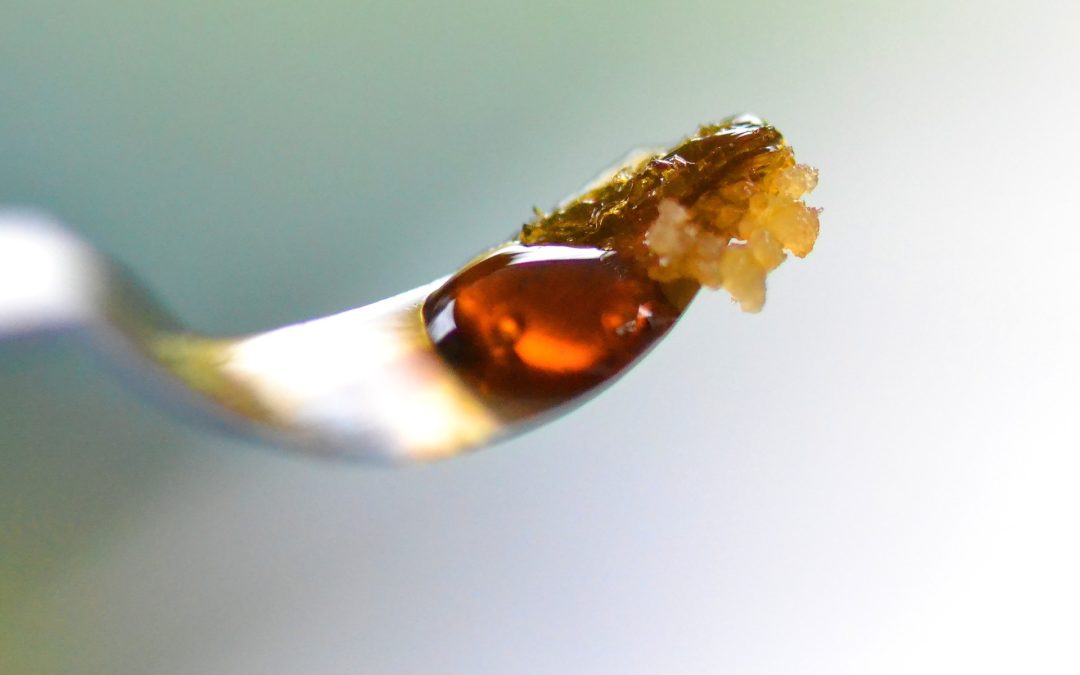Cannabis extracts, also known as “dabs,” have become increasingly popular over the past several years. In fact, dabs can be found in most medical dispensaries across the country, and this has led many to wonder: should medical marijuana patients be using dabs as part of their treatment, and is it even possible to use highly concentrated cannabis extracts safely and therapeutically? Below, Boston medical marijuana doctor Jordan Tishler will explain what “dabs” are, and why medical marijuana patients may ultimately want to avoid these products.
What Is Dabbing?
Dabbing refers to the process of smoking cannabis extracts, which are typically heated to at least 500ºF with a propane or butane torch. Often dabbing is referred to as “vaporization” but in actuality the temperatures used cause combustion of the material with all the nasty toxins one would expect. Dabs are highly potent: by definition, cannabis concentrates contain a much higher percentage of THC than regular cannabis flower. Whereas ideal medical cannabis flower contains 15-20% THC, concentrates typically contain upwards of 80% THC.
Dabs come in many different forms and are often marketed as “wax,” “shatter,” “oil,” or “rosin.” All dabs are made out of cannabis material, but the consistency of a dab is determined by the process by which it was produced. In most, but not all cases, dabs are created by chemically extracting the THC and other cannabinoids from the cannabis sativa plant using a solvent like butane or carbon dioxide. Butane hash oil or “BHO,” for example, is a sticky oil made using butane to strip the cannabis plant of cannabinoids. Many other types of dabs, like wax or “crumble” are made using similar processes and the ultimate consistency of the product depends on the level of purity of the extract.
Although dispensaries and professional extract manufacturers take precautions to ensure that all of the butane used during production is purged before the concentrates are sold, this 2015 study showed that over 80% of concentrates were contaminated with toxic solvents (from the extraction process) or pesticides!
Ultimately, these types of dabs may still have negative effects on one’s health, and they are certainly not meant for medical marijuana patients or the average cannabis consumer.
Is Dabbing Safe for Medical Marijuana Patients?
There is evidence that dabbing may be harmful to one’s health. A 2017 study published by Portland State University found that dabbing at high temperatures clearly exposes the user to significant amounts of toxic byproducts, namely methacrolein and benzene, which are known human carcinogens and neurotoxins. This same study also points out that natural and artificial terpenes, which are often added to cannabis extracts for aromatic effect, have been shown to similarly become toxic at high temperatures.
Although more research is needed on the safety of cannabis extracts and dabbing, all dabs contain large amounts of THC and other cannabinoids, and due to the highly concentrated nature of these extracts, it is difficult to accurately measure how much THC one is consuming at a single time. When dabbing, it is also very easy for one to consume too much THC, which may result in an unpleasant or even overwhelming experience.
Excessive doses of cannabis will lead to development of tolerance which leads to further increased dose and can spiral into an expensive habit and physical dependence. Interestingly, we don’t see those sort of problems develop in patients who are on carefully controlled, low-dose (and yet effective) regimens.
Furthermore, since dabbing generally involves heating cannabis extracts with a blowtorch and a “nail” (the metal or glass platform that gets heated), there is always the risk of starting a fire or hurting oneself. Those who use cannabis extracts must exercise extreme caution so as not to accidentally burn themselves while dabbing or afterwards, when the surface of the nail is still hot.
Turning Towards Safer Methods of Cannabis Consumption
Vaporizing cannabis flower is a far safer and more straightforward option than dabbing. Unlike dabs, it is safe and easy to vaporize cannabis flower: high-quality vaporizer devices are designed to efficiently heat cannabis flower, and many even automatically turn off to avoid injury or fire. Therefore, I generally do not recommend cannabis extracts to my patients. Instead, I would urge these patients to use a high-quality vaporizer device to safely and effectively consume cannabis flower.
For Exceptional Care, Contact Our Massachusetts Medical Cannabis Specialist
If you are considering using cannabis as medicine, I would recommend first consulting with a physician who has experience helping patients use medical marijuana. As a trained Massachusetts medical cannabis specialist, I have spent years assisting patients with all types of conditions safely and effectively use cannabis as medicine, and am certain I can help you, too. Not only will my team and I determine if you may benefit from medical marijuana, but we will also help you understand how to use cannabis in a way that appropriately suits your needs. For more information, or to set up a consultation with the team at InhaleMD, call us at (617) 477-8886 today.

